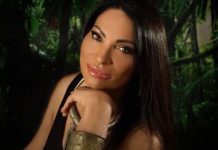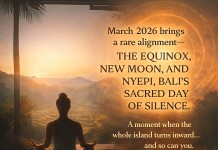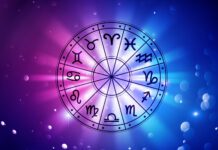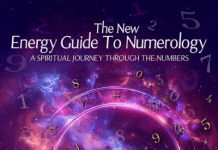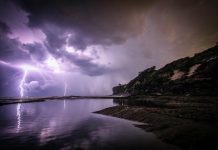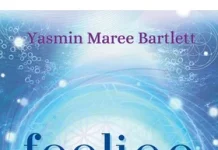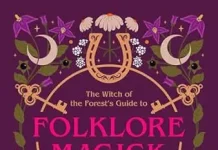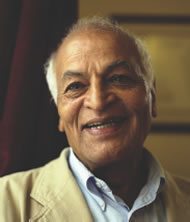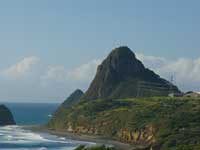
 Spirituality and sustainability are very favourite subjects of mine. I believe that spirituality and sustainability are two wings of the same movement. I feel that much of the sustainability movement, environmental movement and the green movement is driven by fear. I don’t want to be part of a movement which is driven by fear. I want to be part of a movement which is driven by love. The most wonderful thing about nature is that it inspires love. When we see flowers blossoming, fruit ripening, the wonderful birds in the sky, the trees and forests and animals on the land, I am filled with wonder and love. I made a film for the BBC’s Natural World series called Earth Pilgrim which was based on Dartmoor, one of England’s most beautiful wild spots. When you are in nature, you are inspired by love of nature. Love of the earth, love of animals and plants and flowers and butterflies and bees and 8.7 million other species. So I would like the environmental movement to be inspired by spirituality and by love, not by fear.
Science and spirituality
We now have a good scientific case against global warming, against the demise of biodiversity, against so many other environmental problems. But having a scientific case is not enough. Einstein said that science without spirituality is blind, and spirituality without science is lame. So we need science and spirituality together. One without the other leads us astray. If you have science with no spirituality, then you end up with the kind of world we have today. How could a scientist invent nuclear weapons? If there was a moral compass, a spiritual compass, there would be no such misuse of science. But if you have only faith and no science, it can be blind faith. And it can lead to dangerous fundamentalism, whether it’s Islamic fundamentalism or Hindu fundamentalism or Christian fundamentalism or any other kind of fundamentalism. Blind faith is blind! So we need science and we need spirituality together. And the environmental movement at this moment is largely subscribing to scientific views, to empirical views. But an empirical view of environmental problems is not enough, we need spiritual values and vision and a positive inspiration behind the green movement.Global warming or no global warming, what kind of life do we want to live on this earth? Global warming is only a symptom of the disease, not the cause. Why is our entire environmental movement hijacked by one single issue of global warming? I am a great supporter of campaigning to stop global warming, but when you have a mere scientific view, you can exchange global warming with nuclear energy or some other technological fix. But when you have a spiritual view, then you ask: what is our place and our role in this world and on this planet Earth? What kind of life do we want to live? What is the meaning and purpose of our lives? What is the proper relationship between humankind and the natural world? That is the kind of area where sustainability and spirituality can be and should be addressed together. Spiritual and philosophical understandings of sustainability help us to see the bigger picture rather than the narrow single issue obsession, be it global warming or population explosion or demise of biodiversity or something else.
One particular place in which a bigger picture needs to be seen is in the disconnection between economy and ecology. And this I think is perhaps the most fundamental question of our time.
Disconnection between economy and ecology
Not long ago I was invited to speak at the London School of Economics. When I arrived I asked the learned professor who was going to be chairing my session, ‘Where is your department for ecology?’ Do you know what the answer was? ‘We don’t have one.’ This is the supreme example of disconnection. They are teaching economics but have no department for ecology. During my speech I explained the meaning of the words economy and ecology. The words ecology and economy are made from three Greek words: oikos, logos and nomos. Oikos means home. The great wisdom of the Greek philosophers was that the entire planet is our home, not just the place where we have our bedroom, bathroom, living room, etc. Therefore, oikos means earth home, and home means a place of relationships. The word logos means knowledge. Thus oikos and logos put together formulate the word ecology, which means knowledge of the home and all its relationships and activities. We are all related. We are all kith and kin. The birds flying in the sky are our relations, brothers and sisters, as St Francis believed. He was the first great ecologist, a patron saint of ecology.Then nomos means management. Thus oikos and nomos put together means management of our planet home, the earth home and all its relationships. During my talk, I asked the students and professors, ‘Please tell me, how are you going to manage your home if you don’t know it? Can you manage something without knowing it? You are sending thousands upon thousands of half-educated graduates around the world to manage a household of which they have no knowledge. No wonder the world economy is in a mess. What do you expect if you have half-educated people, highly half-educated! Like half-baked bread. If you eat half-baked bread, what do you get? You get indigestion. So our world economy is suffering from indigestion. That is the result of disconnection between ecology and economy. We need to reconnect. We need to understand that human beings are as much a part of nature as the nature out there. Nature is not just the trees, the rivers, the birds, the forests, the mountains—we are nature too. The word nature means to be born—natura. When a mother is pregnant, she goes for prenatal checks. After the birth, she goes for postnatal checks. The words natal, native, nature, nativity, they are all related.
So nativity and nature come from the same Latin root implying birth. So are we not born? How can we say we are not nature and nature is only out there? That is the disconnection. We need to realize that we are nature and what we do to nature out there, we do to ourselves. Nature does not belong to us. We belong to nature. That is the fundamental reconnection we need to make. If we reconnect with nature then there is no dualism, there is no separation, and there is no superiority of human beings. We humans, at the present time, behave like an imperial power. It’s a human empire that we have built and we believe that the natural world is there for our benefit. We can do what we like with animals, we engage in the cruel treatment of animals by putting them in factory farms, we cut down the rainforests to develop more agribusiness, we over-fish our oceans. We do whatever we like because we consider ourselves the rulers of the natural world.
The principle of Ahimsa
This arrogant dualism needs to be brought to an end. I, as a Jain, believe in the principle of non-violence, Ahimsa we call it. Ahimsa is compassion and kindness to all living beings, what Albert Schweitzer called ‘reverence for all life’. At the moment we have lost that reverence. I want to establish what I would call reverential ecology, which goes a bit further than deep ecology. I was speaking with my friend, the late Arne Naess, about deep ecology. I said, ‘Deep is not necessarily good, you can dig a deep hole for yourself. So reverential ecology is to cultivate deep reverence for all life.’ Arne agreed. The moment we have that reverential ecology and a deep respect for nature, then there will be an abundance of gifts from nature. We can receive the gifts of nature with gratitude and celebrate nature; we can enjoy the gifts of nature. In the autumn, we can have an abundance of apples. I’m an orchard keeper, I have fifteen apple trees and I make juice every week—fresh apple juice is like nectar. If you have not tasted real, fresh apple juice you are missing something truly wonderful. All those apples come from one small apple seed. What a miracle that, in that tiny seed, thousands upon thousands of apples are hidden. This is the abundance of nature.This industrial civilization is very fragile. Just look at the world going through this current debt and economic crisis. We are in turmoil—such a fragile system and nobody knows how to solve this problem. G20, European Union, World Bank, IMF—they are all completely incompetent! They do not know how to solve the problem of the economy, because if you disconnect from ecology, economy becomes a problem. The problem is not even of economy, it is just a financial bubble. We confuse money with wealth—but money is not wealth. The real wealth is nature. Land, labour, capital—that was the old classic economy. They’ve forgotten the land—now the land is just a commodity to buy and sell and invest. They’ve forgotten people too. They just think of capital, capital, capital! We need to understand that money is only a measure of wealth. The real wealth is nature: land, animals, water, clean air, human creativity and imagination, communities, skills. So we have to restore the true meaning of wealth.
The change will not come from 10 Downing Street. The leadership will not come from the White House. There were great expectations of Obama. I was in the USA while he was campaigning for presidential nomination. I had great hope; I had read his book The Audacity of Hope. The minute he arrived in the White House, he lost the audacity. Where is that audacity, where is that courage, where is that fearlessness? Real change will not come from the White House. Change will come from the grass roots leaders. That is us. We are all potential leaders. We have to take responsibility upon ourselves and lead this great movement of transition and transformation towards a sustainable and fulfilling future.
My journey
My own ecology, my environmentalism and my love of the earth began when I walked from India. I was inspired by a British philosopher Bertrand Russell who, at 90 years of age, protested against nuclear weapons and went to jail. I was 25 years old and sitting with a friend, in a cafe reading a newspaper in Bangalore and I said to my friend, ‘The 90 year old philosopher Bertrand Russell is in jail because he is protesting against the bomb. What are we doing here young men drinking coffee? Let’s do something!’ Then and there, inspired by Russell, my friend and I said, ‘Let us go to the four nuclear capitals of the world—Moscow, Paris, London, and Washington DC—and protest against the bomb and for peace.’
We walked through Pakistan, Afghanistan, Iran, Armenia, Georgia, Russia, Eastern and Western Europe, America and Japan. We walked 8,000 miles without money and we did it as human beings. If we had walked as Indians, we would have met Pakistanis or Russians. If we had walked as Hindus, we would have met Christians or Muslims or Jews. If we had walked as Gandhians, we would have met Communists or Capitalists. But we walked as human beings—and so we met human beings everywhere.
Identity, diversity and unity
What is our true identity? Who are we? A Muslim, a Hindu, a Christian, a Jain, a Communist, a Capitalist, a Gandhian, an environmentalist? All these identities are secondary. A writer, a lawyer, an accountant, a professor, a priest, a vicar—all these are secondary identities. The primary identity is we are all human beings—whatever our religion, our politics, our skill, our colour, we are all children of nature. That is our true identity. That is my spirituality and we need such spirituality if we truly want a sustainable future. We have these artificial divisions. Division is not the same as diversity. Diversity is a wonderful thing—biodiversity, cultural diversity, religious diversity. If you had only one colour in a garden—red roses, red roses, red roses—it would be a boring garden. We want many different kinds of roses, flowers and trees. In the same way if everyone upon this planet was Christian, Christian, Christian, or Muslim, Muslim, Muslim, or capitalist, capitalist, capitalist, it would be a boring world. It’s wonderful that we have so many religions, so many cultures, so many colours, so many languages. Each of us has a unique face. Everyone of us has a unique voice—whatever language we speak. The simple wonder of diversity. Why do we despise this diversity and want to create a monoculture of the mind? Evolution favours diversity.
Of course, within diversity there is the unity of life. But unity is not uniformity. Diversity and unity are two sides of the same coin and we need both of them. Through spirituality I gained such an inclusive world view.
Pilgrims and tourists
My friend and I started our journey from the grave of Gandhi and ended it at the grave of John F Kennedy—to make the point that if you believe in the gun, it kills not only the bad guy it also kills a Gandhi, or a Kennedy. So let us not believe in the gun, let us believe in peace.
I learnt this nature spirituality by walking the earth, by being an earth pilgrim, a peace pilgrim. If we live on this earth as pilgrims, and not as tourists, then there will never be any problem of sustainability. But if we live as a tourist and not as a pilgrim, then there will always be a problem of sustainability, regardless of how many technological fixes we create. The tourist mind is an egotistical mind. As a tourist, you want the best hotel for yourself, the best taxi, the best museum—but whatever you get as a tourist, you are never satisfied, you always complain. Nothing is good enough. But a pilgrim never complains. Whatever is given is a gift, a gift from God, a gift from nature, a gift from the universe, a gift from people. In the two and a half years of walking, we stayed in palaces, in paupers’ houses, outdoors. Sometimes we had food, at other times we had none. Whatever came to us was a celebration. When we had no food, we took that as an opportunity to fast; and when we had no shelter, we slept under the sky which we took as a million star hotel!
A spiritual matter
Sustainability is truly a spiritual matter as well as it is a scientific matter. The universal principle is harmony, and the knowledge of that harmony is science. You have to know your universe. You need to know how all the species are related. Evolution, gravity, complexity, Gaia, chaos—these are wonderful scientific theories. And when you express that harmony of the universe through words, through music, through pictures, through architecture, through all kinds of works, that expression of harmony is art. The practice of harmony in your daily life, in your family life in your social life is spirituality. Spirituality is not when you go to church on Sunday or the mosque on Friday or a temple every morning. That is only a symbolic act that is just to keep you in practice. But spirituality is in every breath, every step, every moment, everyday life. Cooking is a spiritual action, gardening is a spiritual practice. In the Buddhist tradition, even breathing is a spiritual action. Spirit in Latin means breathing: inspirare, expirare—you breathe in, you breathe out, and when you’ve stopped breathing, you’ve expired. When Richard Dawkins interviewed me, he said, ‘I don’t believe in spirituality.’ I said, ‘Mr Dawkins, don’t you believe in breathing?’ Spirituality is something you cannot measure. Think of love—can you measure how much love and respect I have for you? Science can measure, spirituality can give you meaning. Having measure and meaning together is much better than having only one or the other. Why have only half when you can get the whole? Spirituality is the essential ingredient of sustainability. The environmental movement has failed to change the direction of our society, because we have been using the same tools of empirical and scientific data which everybody in government and business use. We have been willing to see ecology and economics as separate, rather than as two sides of the same whole. We have allowed ourselves to be cut off from the nature we are truly part of. We have to have something more—a greater vision—and that greater vision can only come from spirituality. Let’s not be shy to speak about the ‘S-word’. I know the intellectual world is full of empirical knowledge and that pure reason is guiding that world, but I think that is not enough. We have to proclaim that without the love of the earth, the earth cannot be sustained. We love the earth and we are pilgrims of the earth.
Â
Internationally renowned Dr Satish Kumar will be speaking in Adelaide and Willunga in September
More than 50 years ago Dr Kumar set off on a walking pilgrimage that took him from India to Moscow, Paris, London and Washington to spread the word of peace to those who controlled the nuclear threat.
Since then, the man with a quiet voice and a strong message, has been teaching people from all parts of the world about peace, ecology, sustainability and a simple life that looks after all of nature’s gifts.
The South Australian lecture series will be hosted by government minister Leon Bignell MP
Wednesday September 11 from 7pm: The Relationship Between Ecology and Economy.
Institute Hall, Main Rd Willunga
Thursday September 12 from 7pm: Soil, Soul and Society .
Cynthia Poulton Hall, St Peter’s Cathedral, North Adelaide
Bookings essential to register call 08 8406 3736 or 0451 513 913 or email wcoleman@depoiconsult.com
Cost: Adults $20, Non wage: donations only – both payable at door
For more information on Dr Kumar, the founding editor of Resurgence Magazine visit www.resurgence.org/satish-kumar/
 Satish Kumar is the Editor-in-Chief of Resurgence & Ecologist magazinewww.resurgence.org Â



